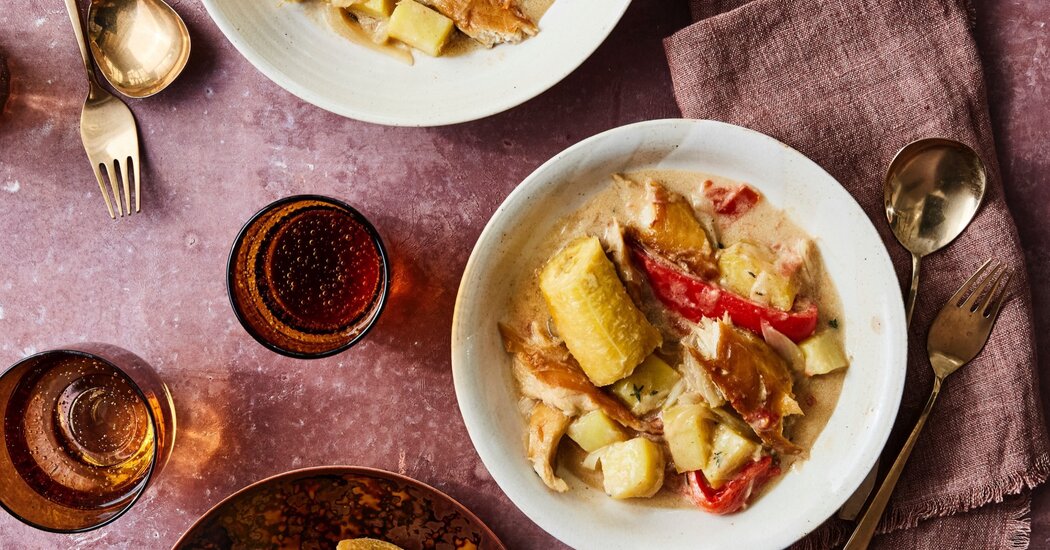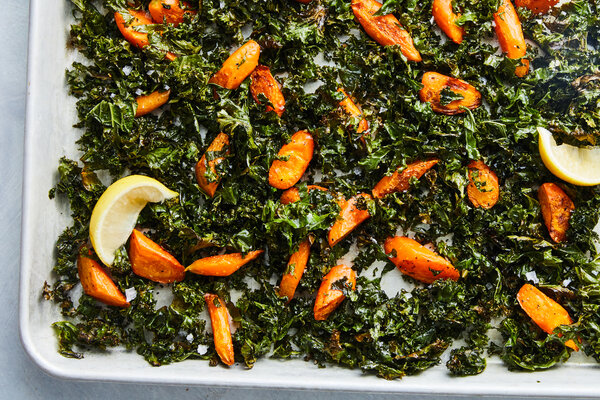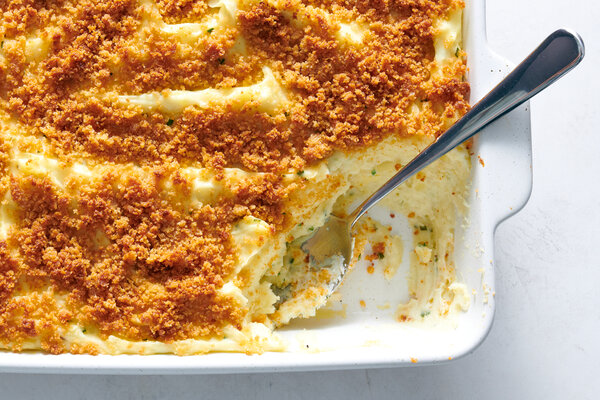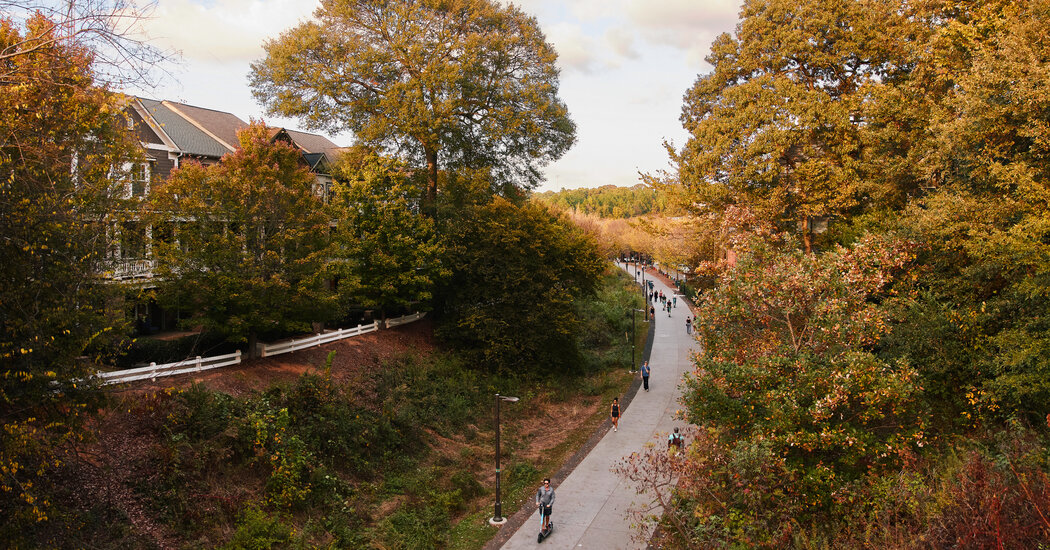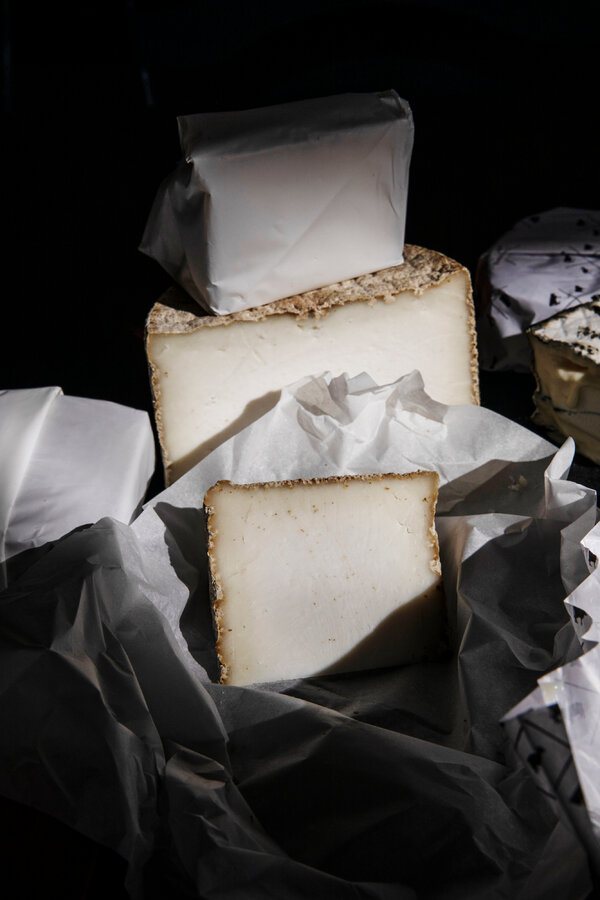“So much of Jamaican food is resistance food,” Thompson told me. “It’s like, ‘We’ll take what you’re offering because we have to. But we’re going to make it amazing.’”
In this, the dish has kinship with American barbecue and French classics like coq au vin and boeuf bourguignon, all testaments to the power of seasoning and steady, patient simmering to soothe and lull tough meats until they give up their knots and enter glory.
Thompson begins by slackening onions in a pan, followed by garlic and yellow yam, tomatoes and red bell pepper, contrasts of yield and crunch. Spices are half the transformation: ginger, allspice and cumin, built to warm; thyme, with its kiss of camphor; bay leaves for a piney depth. Coconut milk is poured over, and the heat is left to do its work until the yam turns tender. Only then does the fish go in — “don’t add it too early,” she warned — and the coconut milk gets another 10 minutes to “run down” and thicken to near cream.
In Thompson’s version, smoked mackerel takes the place of salted mackerel, because it’s more readily available in England. The smoke quietly imprints itself, like a memory. She thinks of her grandparents, adjusting to the ingredients they found in their new home. They were part of the Windrush generation, named after the ship that in 1948 brought passengers from the Caribbean — including several hundred from Jamaica — to settle in England. Parliament was about to pass a law granting Commonwealth subjects the right to live and work in Britain, though some members complained to the prime minister, fearing that this “influx” would “impair the harmony, strength and cohesion of our public.” He replied by downplaying the event and pointing to the country’s need for laborers, writing dryly, “The majority of them are honest workers, who can make a genuine contribution.”
Today, Thompson said, Jamaican food remains on the fringes of the British dining scene. A few Jamaican chefs are experimenting in ways she finds exciting, but “the moment you start raising the prices and fancify, all the aunties come saying, ‘Why is this costing me 13 pounds when I could cook it for myself?” she said. Part of her likes that Jamaican restaurants are still a secret, though: “It means that our spaces are protected — that they’re for us.” At the same time, “anyone who is interested in food is interested in sharing,” she added. “I want people to know how good it is.”



